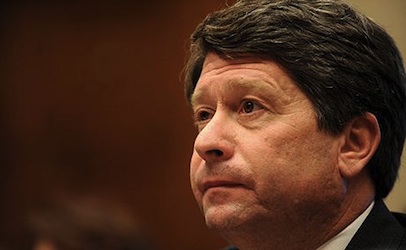ALBANY, GA –After 13 and three-quarters hours of testimony in Stewart Parnell’s hearing to vacate the 22 years remaining on his sentence, it isn’t over.
Government objections helped keep one expert witness from testifying at the evidentiary hearing held Monday and Tuesday at the C.B. King federal courthouse in Albany, GA.
In court filings just before the hearing began, Assistant U.S. Attorney Speare I. Hodges said the expert “Trial Consultant and Strategist” would just be offering opinion “on the ultimate issue before the Court–the effectiveness of Parnell’s trial court counsel.
Judge Thomas Q. Langstaff opted not to allow the Trial Consultant to testify but allows Stewart Parnell’s attorney to submit a written report by no later than June 9 “regarding the proposed expert.:
Langstaff, the appointed Magistrate Judge for the U.S. District Court for the Middle District of Georgia, did not like the late addition of the expert to the Stewart Parnell witness list. “The Court notes that the Petitioner had many opportunities and ample time to secure the testimony of his witnesses prior to the evidentiary hearing, “Langstaff said.
The government will have 14 days after the expert witness report is filed to submit any motion it deems appropriate as to whether the expert testimony is admissible under Federal Rules of Evidence.
Parnell’s attorneys then get seven more days to respond. After that, the Judge will rule on what happens with the expert’s submission.
Should the Court find that the report is in compliance and that the testimony is admissible under the Federal Rules of Evidence? In that case, it will issue a scheduling order, addressing the potential for the government deposing the witness and calling a rebuttal witness.
Unlike “Bull” on television, Denise de la Rue is both an attorney and a trial consultant. ” A case may not often be won in jury selection, but too often it is lost there,” her website says. “All too often, lawyers seat one or more jurors with whom they cannot win because the juror has an experience, a world view, or a bias that was not discovered in voir dire.”
The Atlanta-based trial expert believes Parnell’s trial attorneys failed their client because:
- They did not use survey research to determine how pretrial publicity and the local sentiment were going against the Parnells and Peanut Corporation of America (PCA), supporting a motion for change of venue.
- They did not make a motion for enhanced jury selection procedures.
- They did not hire a jury consultant, and any competent jury consultant would have told them to strike for cause jurors with the knowledge that death resulted from the charged conduct.
- The knowledge of deaths result from charged conduct (the 46-state Salmonella outbreak in 2008-09) is highly prejudicial and adversely sway a juror.
The writing stage of the Motion 2255 process means it is unlikely that the Judge will be able to issue a ruling on the Stewart Parnell petition until sometime in July at the earliest.
Meanwhile, the evidentiary hearing for Michael Parnell’s motion to vacate his sentence begins Wednesday afternoon, also in the Magistrate’s courtroom in Albany, GA.
A jury trial in 2014 convicted the Parnell brothers of multiple federal felonies involving food safety. The trial judge sentenced Stewart Parnell to 28 years in federal prison and Michael Parnell to 20.
The Eleventh Circuit Court of Appeals in Atlanta upheld their convictions and sentences.
The Parnell brothers both filed “2255 Motions” to set aside or correct their sentences. Evidentiary hearings on those motions are what’s been underway this week.
A Motion 2255 is an option only for people convicted in federal courts who are in custody. The Motion 2255 process gives the broad discretion in fashioning relief, including everything from dismissal on all charges to release, retrial,or resentencing.
To sign up for a free subscription to Food Safety News, click here.)

